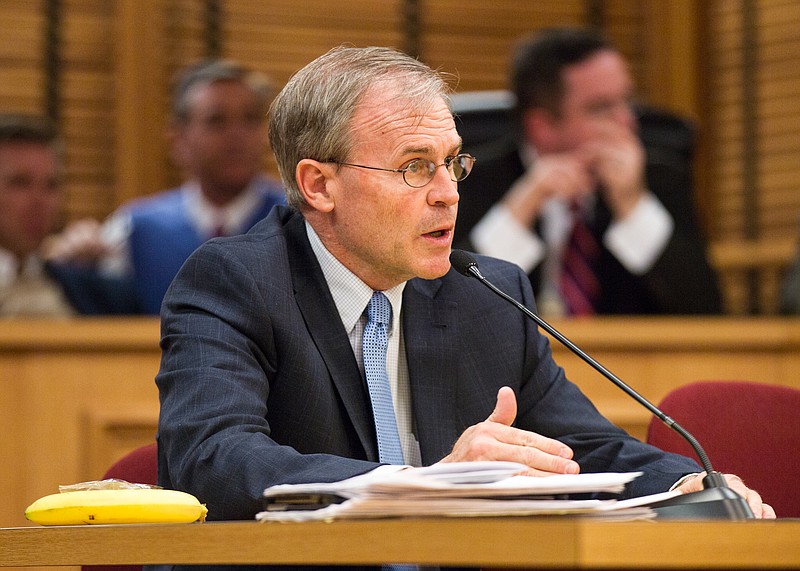NASHVILLE - A proposal to amend Tennessee's Constitution and leave the General Assembly with sole discretion over what it spends on public schools moved through a House panel Tuesday after heated debate.
Administration and Planning Committee members approved House Joint Resolution 493 on a 7-5 vote. It now goes to the Finance Committee for further consideration.
The sponsor, Rep. Bill Dunn, R-Knoxville, said the change is necessary to protect taxpayers from "activist judges" who might rule the state is not adequately funding education.
"This is to prevent judicial tyranny," Dunn argued. "If a judge comes in and they raise taxes, it's beyond criminal."
Dunn's plan seeks to amend the state constitution's Article 11, Section 12's directive. It now says the General Assembly "shall provide for the maintenance, support and eligibility standards" of a system of free public schools.
The Knoxville lawmaker's proposal adds new language to the current constitutional provision. Support would be done "in such manner as the General Assembly may determine," it says.
Rep. Kevin Dunlap, D-Rock Island, pointed to Tennessee Supreme Court rulings in the original Small Schools lawsuit in the early 1990s and two subsequent rulings that effectively required state lawmakers to fix funding inequities that he said had hurt students in rural Tennessee.
"Here are the facts as I see them," Dunlap said. "Education in the state of Tennessee in 2015 is much, much better than where it was before the Small Schools lawsuit."
Without the language "those small school lawsuits might have never happened," Dunlap said, adding poorer school systems can now provide students with "more opportunities" and have "more equity because we have a constitution, we have a separation of powers and we have a judiciary that stepped forward with all due deference [to the legislative and executive branches] and said the way we were funding our kids was not equal."
Dunn said he feared a repeat of situations in other states where he contended high courts have forced tax increases.
His resolution comes as school districts in Hamilton and six nearby counties are embroiled in a lawsuit against the state seeking to break new legal ground. The Small Schools cases rested on equal protection and the state mandate to fund public education in the name of equity.
The Hamilton County suit argues Tennessee is failing its constitutional obligations by not provide adequate funding and that there can be no equity without adequacy. The case is now before a Davidson County chancellor.
In order to go before voters, Dunn's proposal faces a lengthy process. It would have to pass both the House and Senate in the current 109th General Assembly.
If it passes there, it would then go before the 110th General Assembly whose members are elected this November.
There, it would ultimately require two thirds of the House and Senate approving it. Only then could it go before voters in the 2018 ballots that includes the gubernatorial contest.
Contact staff writer Andy Sher at 615-255-0550 or asher@timesfreepress.com.
